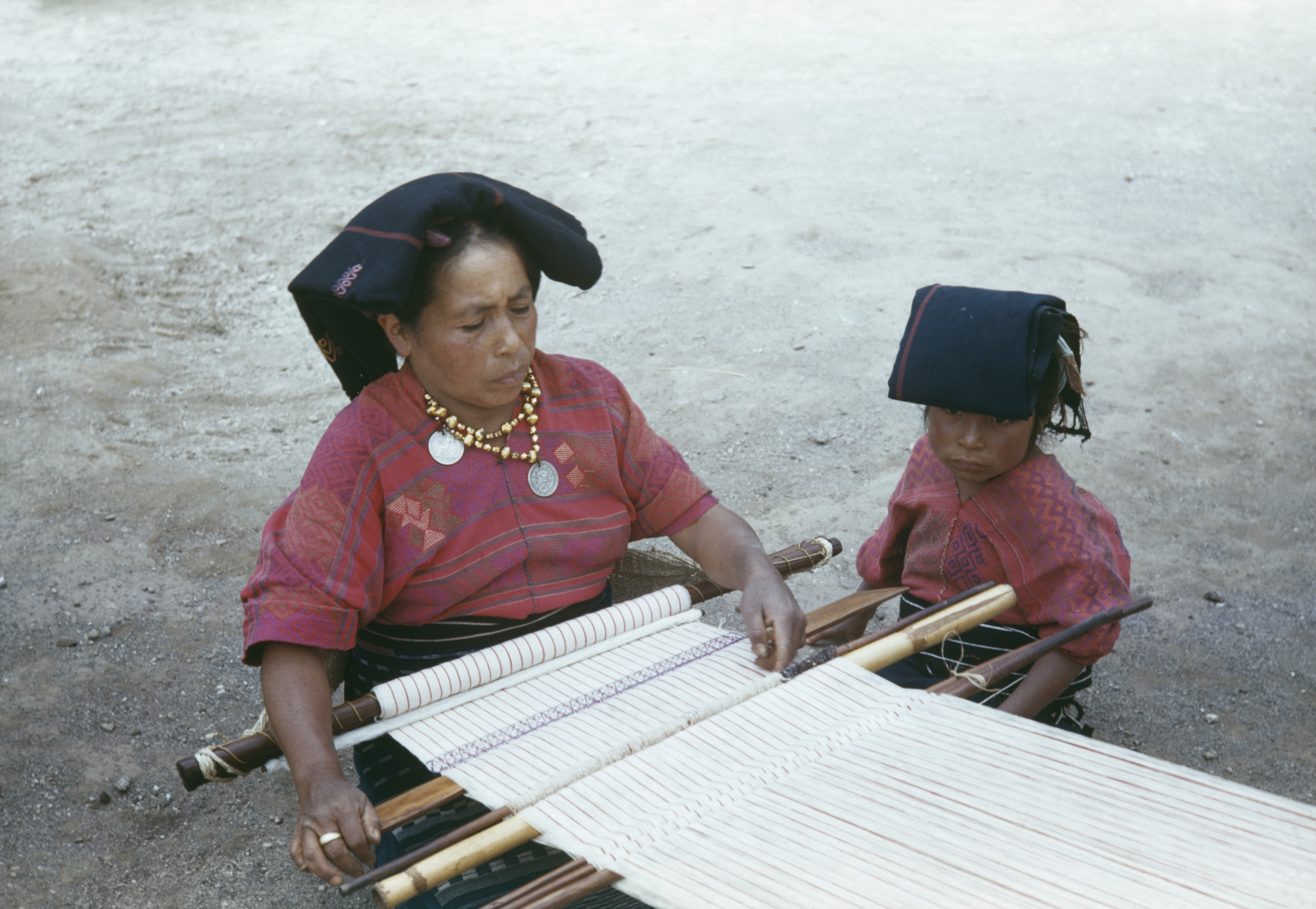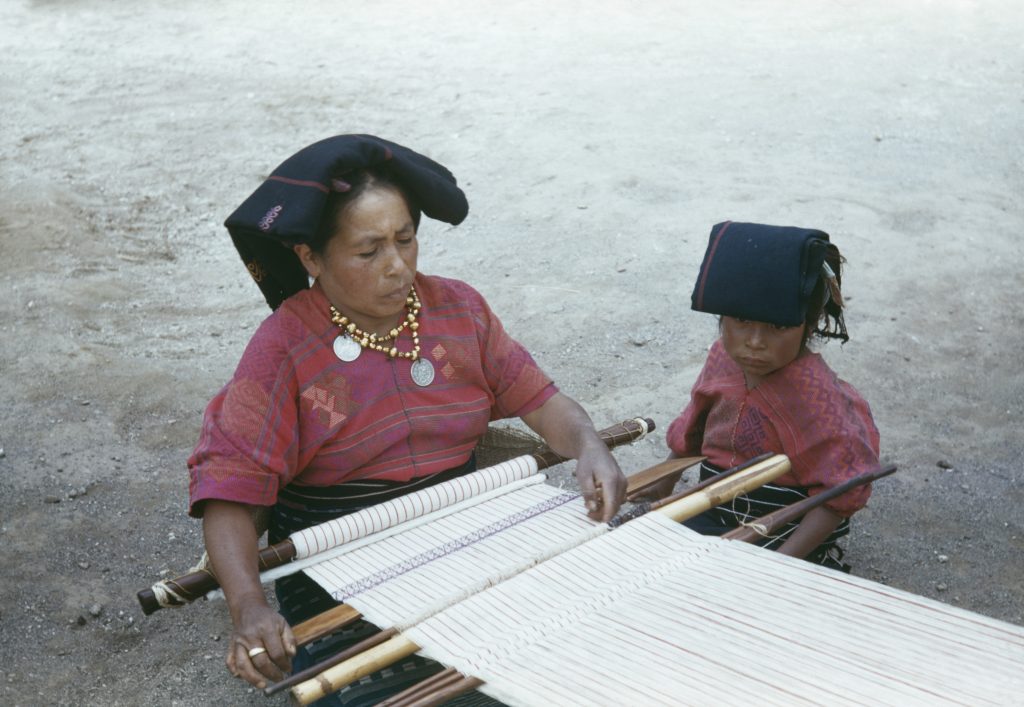“This art form is valuable because it represents our culture, and the Cojolya Association is a way for more people to learn about our work,” weaver Juana Mendoza said in a 2015 interview. Today, many Guatemalan artisan associations like Cojolya are fighting to stay afloat in the face of COVID-19.
These organizations play a vital role in terms of income generation and celebration of Indigenous culture, particularly in the face of the Trump administration’s proposed restrictions to the asylum system. Despite the racism and xenophobia the Maya people fought during colonization or the U.S.-backed military dictatorship, these policies will make persecution based on Indigenous identity an invalid asylum claim.
Though Maya communities endured systemic disenfranchisement long before the pandemic came to Guatemala, the virus only exacerbates the intersecting inequalities they face. “In a population that has experienced… historical trauma and recent ecological catastrophes, this current crisis is aggravating the coping skills of even the most resilient families,” Guadalupe Ramírez, founder of the Pixan artisan collective, wrote in a recent Instagram post. The non-existent social safety net takes a particular toll on informal workers, which mostly consists of Indigenous women, including artisans.
While artisan collectives vary in structure—ranging from fair trade certified NGOs to abuelas teaching their granddaughters traditional embroidery—they forge paths beyond local mercados, where handmade work is ubiquitous and undervalued. In national and global markets rife with exploitation, these cooperatives empower artisans to defend their works’ cultural significance through pooled resources and collective strength.
This progress in community development has been stalled as the risk of infection, with only six hospital beds per 10,000 Guatemalans, makes COVID-19 particularly deadly. For Creamos Futuros, an NGO, which has offered artisan women vocational and psychosocial support for over 10 years, suspending their operations means that 200 women are without income and unable to support their families. For collectives like Pixan, shuttered storefronts in tourism hubs have cut off their main sources of revenue. Even though these organizations are offering vital aid to their weavers, their visions for sustainable employment are in danger.
Despite these trials, artisans across the nation’s 24 ethnic groups and languages have drawn upon the innovation crucial to Maya resilience across history. Various associations are producing masks and strengthening their digital presence. In early May, organizations across Latin America launched the hashtag, #TogetherforArtisans, to raise awareness about artisans’ struggles with no foreseeable income.
“How we buy now can set a precedent for the types of businesses that can survive this,” artisan liaison Elena Laswick observes, advising that shoppers approach self-proclaimed “ethical brands” with skepticism.
Honoring global calls to support BIPOC-owned businesses is one small simple step in making reparations towards communities whose art, wisdom and livelihoods have been violently repressed. Check out, and consider donating to, the following artisan initiatives before you buy an “ethnic” bag from a gringo off of Amazon.
Pixan
Beyond the mesmerizing pastel flow of their Instagram, Pixan—which comes from the word “spirit” in Nahuatl—creates items that epitomize Indigenous storytelling through textiles. Each product is woven at the backstrap and foot looms with hypnotizing diamond designs drawn from the distinct elements of sacred geometry and Maya astrology. Their COVID-19 relief fund provides weavers in Santa Catarina Ixtahuacán, El Valle de Palajunoj, and San Juan Ostuncalco with crops to combat long term food insecurity.
Utz Threads
“We’re more than just a product, we’re a group of women building together to create something bigger than ourselves using our strengths, our ganas and our resourcefulness,” Utz Threads founder Cinthya Flores says of her collaboration with weavers in Chichicastenango. This coalition between emprendedoras in the Bay Area and Guatemala is rooted in self-determination and embodied in Utz’s adaptations of Chichi’s intricate textiles. As a bonus, you can learn to say the collection names, which draw inspiration from local drinks (Saq Joch’ (sak-hoch) – Atol Blanco) and spirituality (Q’ij Tat (keyj – tat) – Father Sun).
Meso Goods
What began as a co-creation between Guatemalan designer Diego Olivero, Uruguayan sustainable business strategist Gonzalo Pertile, and Indigenous Guatemalan creators such as wool weaver Luis Poncio, has expanded to employ over 400 artisans. Their creations are a textile expert’s masterfully textured interpretations of contemporary minimalist art that look cool as hell in quite literally any setting. You can support Meso Goods’ communities and vision for a Social Design Movement through donating to the Arte Sano fundraiser.
Mujeres de Maíz
The small but mighty dream team at Mujeres de Maíz is made up of three Tz’utujil embroidery artists, one weaver, and one Brazilian apparel designer. “We want to give our women neighbors authority through their designs,” co-founder Loida Sisay tells us of her work, reimagining discarded traditional shawls (rebozos) and wrap skirts (cortes) into other apparel, shoes and jewelry featuring Santiago Atitlán’s iconic aviary embroidery. Mujeres de Maíz is contributing their work to Cojolya’s COVID-19 relief gift sets and selling their products through Kakaw Design’s Artisan Direct Pop-up.
Adelante Shoes
Adelante Shoes’ theory of change makes global development goals relevant on a local scale in the town of Pastores, famed for its leatherwork—specifically, their made-to-order leather shoes that are handmade in a central workshop. Adelante pays craftsmen to double the market wage, and their Pastores Fund has provided meals to over 1,100 locals affected by COVID-19.
Cojolya Association of Maya Women Weavers
Initially formed to provide economically viable employment to Tz’utujil widows during the Guatemalan Civil War, the Cojolya Association of Maya Women Weavers has empowered multiple generations of artisans in Santiago Atitlán since 1983. Their home goods and accessories celebrate their town’s thick woven brocades, embroidery and hand-dyed textiles. Check out their Global Giving initiative to see how you can support COVID-19 relief for weavers and their education program.
Creamos Futuros
“We’re not just here to earn a living, we’re also here to learn to love and respect ourselves,” Irina, an artisan at Creamos Futuros, says of her work. Creamos is an income generation initiative of Safe Passage, an NGO that supports communities living alongside the garbage dump in Guatemala City. Beyond donating to their ongoing programming, all profits from their June sale of screen printed accessories and jewelry made from recycled materials will go towards sustenance for their artisans’ families.
Itza Wood
Carpentry is a longstanding practice in the Petén jungle, which Itza Wood seeks to conserve through entrepreneurship and contemporary design. By employing graduates of The Jungle School, Itza Wood aims to support business development across the remote region. Behind the ASMR of their stunning wood carving videos, they are dedicated to sustainability and have planted over 45,000 trees in a reforestation project. They also work exclusively with FSC-certified wood.
Ixil Collective
The Ixil Collective promotes the unique textiles from the remote Maya Ixil towns of Nebaj, Cotzal, and Chajul, which are eight hours from the capital via bus. The Ixil region’s woven rhombuses and pom-pom headdresses inspire the products, which you can trace back to the specific artisan, process and materials that created them.




